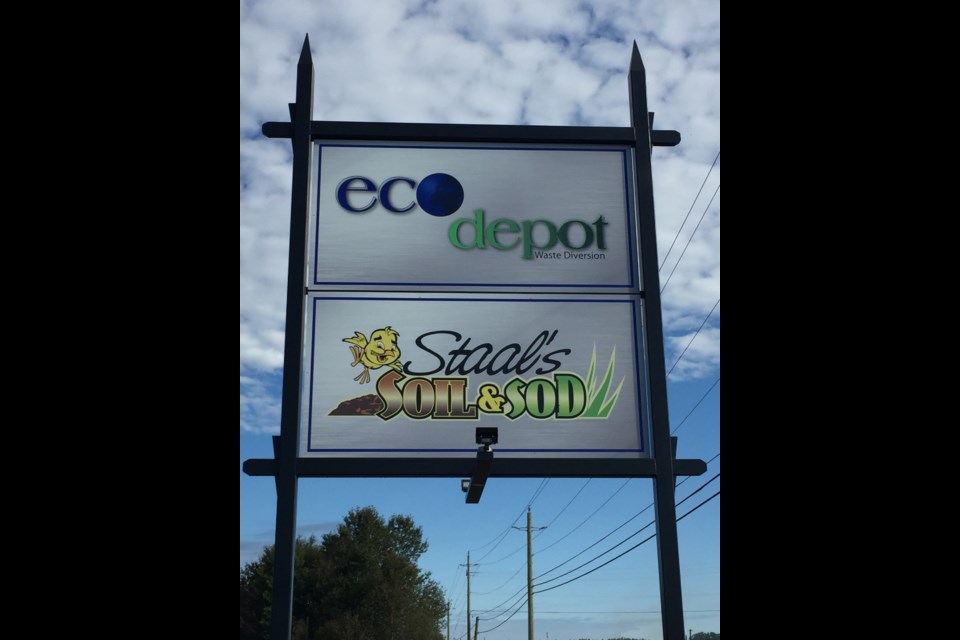THUNDER BAY -- Work continues on the infrastructure for a new waste diversion facility, the first of its kind in northwestern Ontario, which will initially process up to 30,000 tons of organic waste a year.
Eco Depot Waste Diversion is building a Category A composting operation at a site on the Twin City Crossroads in Oliver-Paipoonge.
It will accept a wide variety of material from multiple waste streams including residential, commercial, institutional and industrial: food waste, plant matter, brewery and winery waste, paper fibres, and pre- and post-consumer organic waste from residents, restaurants and businesses in Thunder Bay and surrounding communities.
The company had hoped to be in operation by this point, but spokesperson Samantha Rizzo told tbnewswatch.com that the business now expects to be able to accept waste by the spring of 2018, and to have finished compost ready about six or seven months later.
Eco Depot's compost will be suitable for different commercial and consumer applications including gardening, lawns, bioremediation and erosion control.
Rizzo said the company has also looked into. and is permitted to accept, bio-solids, or sewage sludge. "Although we may not use those initially, they are part of a potential recipe. It's a waste that would otherwise have lost nutrients if disposed of in the traditional way, but if we used it, those nutrients would go into the compost," she explained.
The company's plans have generated considerable interest in the community, Rizzo said.
"We get a lot of phone calls from people wondering when they can start dropping off their waste. I know Thunder Bay is certainly eager to have it up and running."
She said with the Waste-Free Ontario strategy coming to fruition, "There's going to be a lot more push from the public, I think, to have things like this."
Company will benefit from Ontario's push for more diversion
According to the government, each person in the province currently produces an average of over 850 kilos of waste a year.
Ontario recycles about 25 per cent of its waste, leaving over eight million tonnes of material going to landfills annually. The situation has not improved over the past decade, but there's a strategy to improve the diversion rate to 30 per cent by 2020 and 50 per cent by 2030.
With respect to re-using food waste, Eco Depot plans to focus on the larger waste generators in Thunder Bay, including hospitals and school boards, thereby "pulling generous amounts of waste out of the landfill," Rizzo said.
However, at least initially, individual homeowners will have to bring their household waste directly to the depot if they want it composted.
Rizzo conceded that householders are more interested in curbside pickup for discarded food, and "that would have to be something that would be rolled out by the city."
She noted that the company has been working with other organizations on the potential for pilot projects. "We might be able to do a pilot where certain households do get compostable bins, and we do pick up their waste, just to show the city that it is a viable option," she said.
When it begins operation next year, Eco Waste expects to hire a staff of eight.
As the demand grows and the company is allowed to accept more material, Rizzo said, the workforce will grow.
